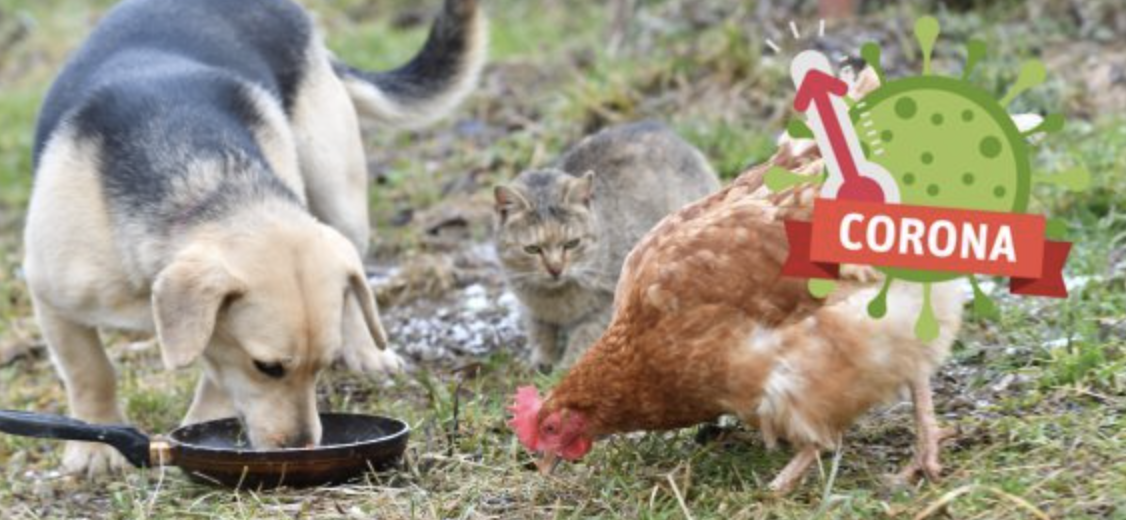What is known about the role of animals in transmitting this coronavirus?
‘We haven’t received any data from China showing that pets and livestock can be infected with SARS-CoV-2 (the official name of the virus that causes COVID-19 – ‘coronavirus disease-2019’ in full, ed.), or that they are a source of infection for humans. But that is something that calls for further research. Coronaviruses are found in a number of animal species, such as canine coronavirus (CCV) in dogs, feline coronavirus (FCV) in cats, porcine respiratory coronavirus (PRCV) in pigs and infectious bronchitis virus (IBV) in chickens. Most of these coronaviruses are specific to certain species and are not transmissible to humans.’
A dog in Hong Kong did test positive for SARS-CoV-2.
‘At present it is not clear whether the dog was really infected, or whether it was a case of an environmental contamination, with the virus getting onto the dog’s mucous membranes through contact with the owner. Establishing that would require serological research, testing for antibodies against the virus – but we don’t have that test yet. It will probably be available for humans soon, and then we will be able to detect the virus better. The current detection method simply shows the presence of the virus and that is only possible during the acute phase, approximately between days 3 and 14 of the infection.’
Coronavirus patients are being advised to avoid contact with pets, such as stroking, cuddling and letting them lick you
It is now compulsory to report any case of an animal testing positive for coronavirus.
‘So although the risk of an animal becoming infected is small, vets who suspect that a dog or cat is showing symptoms after contact with a patient with SARS-CoV-2 can get in touch with us. We can take tissue samples from those animals, and we do so in consultation with the Netherlands Food and Consumer Product Safety Organization (NVWA). If an animal tests positive, that must be reported to the NVWA, which will pass the information on to the World Organization for Animal Health, the OIE.’
Are you getting a lot of requests for testing now?
‘Up to now we have tested just one dog, and it didn’t have the virus. We also got a request recently to test ingredients for animal feed and foodstuffs. There are no indications that the virus is spread via food, but apparently some countries want to err on the side of caution and are tightening up import requirements.’
People are working on developing vaccines at various places around the world
You are going to research how animals react to the virus?
‘In collaboration with an international consortium, we are going to research whether and how animals get infected. We are doing those tests in the context of vaccine development because we have to test the vaccines on animals first. So we want to know, for example, which animals would be the best to use and how they become infected. One of the things you need to know is what kind of samples, such as throat or nose swabs, you need to take in order to detect the virus and to find out whether the vaccine is working. We tend to favour using pigs because their immune system closely resembles the human one, and because we know their cells also have receptors for SARS1, the virus responsible for the outbreak in 2013, which has a lot in common with SARS-CoV-2. Ferrets have these receptors too, and are therefore often used in animal testing for this kind of virus. We’ll decide next week which animals we need for this, and then we can order the animals and start the first experiments. People are working on developing vaccines in various places around the world. The consortium spreads the odds on success so we can produce a vaccine as fast as possible.’
What should a pet owner or a farmer do if they catch the virus?
‘Even though there is no evidence that pets play a role in spreading the virus, coronavirus patients are advised to keep contact with pets to a minimum, including stroking, cuddling and letting them lick you. If possible, leave pet care to others in the house who are not sick. The same advice applies to livestock farmers who catch the virus: let other people tend to the animals. The question is how sustainable that will be if a lot of people fall ill. But these animals do end up in the food chain, so it’s better safe than sorry.’

